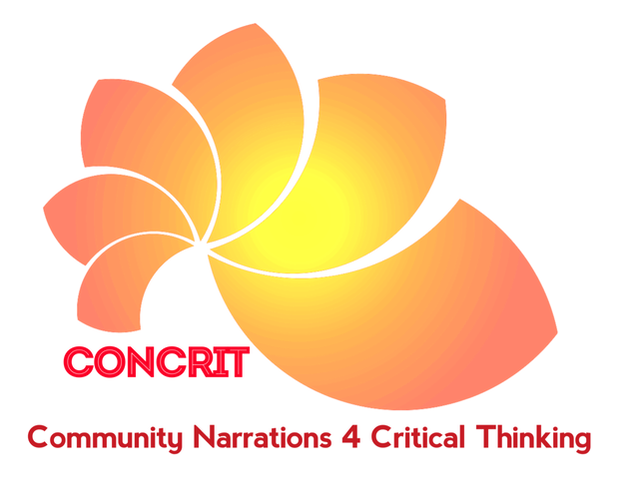Digital matters
Aims of the activity[edit]
Highlight the role that civic education plays in the acquisition and use of digital tools and skills by:
- Encouraging an understanding of why the acquisition and development of digital skills and the ability to use digital tools need to be accessible to all.
- Nurturing an understanding of how people’s life chances can be significantly improved through the use and acquisition of digital skills and the use of digital tools.
- Exploring why representation and identity are important.
- Studying how important civic education and community projects are important for the acquisition of digital skills and media literacy for individuals and groups of people who are deemed to be marginalised.
- Participants will reflect on the importance of using digital tools and developing digital skills in civic education.
Resources, Materials needed[edit]
- Digital Matters PowerPoint presentation.
- Paper and pens.
- Internet connection.
- Projector.
Duration in minutes[edit]
120 minutes.
Step-by-step - what has to be done[edit]
Use the PowerPoint in resources as a guide through the session:
Slide 1. Opening slide "Introducing the session". Here it will be good to introduce yourself and ask the participants to introduce themselves. Ask them why they have joined the session and what they hope to get out of it.
Slide 2. Overview of the session showing what areas will be looked at.
Slide 3. Ask the participants to work in pairs and list how they have used digital tools to enhance their own life chances (10 mins).
Slide 4. Ask the participants to individually answer how can digital skills make things more inclusive and accessible? Make a list and then discuss in the group (5 mins).
Slide 5. Why does representation and identity matter? Take a moment to consider the statement on the slide. Group discussion asking why this is the case? and how can we address this imbalance (10 – 15 mins).
Slide 6. Take a look at the slide "Identity" and consider it (5 mins).
Slide 7. How and where do you see yourself represented? Working in small groups ask the participants to identify where and how they see themselves represented, or not. Furthermore, ask the group why it matters. Last, put reflections on flip chart (15 mins).
Slide 8. Take a look at the slide "Representation Matters" and consider it (1min). Discuss in group using the reflections produced by the participants from the Slide 7 (10 mins).
Slide 9. Ask the group if they know of any examples of projects in which participants created their own digital content. Pair up participants to discuss these projects. Ask them to list the digital tools used. What were the themes (what was it about)? Who were the participants? What was the outcome of the project? What worked well? What could have been improved? (20 minutes) OR, if they don't have examples, give them a case study from the booklet and ask them the same questions as above.
Slide 10. Work in small groups to discuss the contexts in which people work and how they see how digital tools and skill development might work in that context (15 minutes). Groups choose a representative to give feedback to the main group (15 - 20 minutes).
Slide 11. Link to this final slide, explain why it is important that ALL citizens have access to resources and knowledge. Take time for questions and answers before closing the session (5-10 minutes).
Learning Outcomes - which skills are adressed?[edit]
By identifying and listing how digital skills have increased their personal life chances, feeding back and discussing in pairs or groups, answering questions, reflection and listening, as well as identifying and listing methods to increase accessibility, the participants will:
- Gain an understanding of how people’s life chances can be significantly improved through the use and acquisition of digital skills.
- Gain an understanding of why the development of digital skills and the ability to use certain digital tools needs to be inclusive and accessible to all.
- Explore why representation and identity matter.
- Explore how important civic education and community projects are important for the acquisition of digital skills and media literacy for individuals and groups of people.
How do you check the outcomes are reached?[edit]
Working in pairs they will have:
- Identified and listed methods to increase accessibility.
- Fed back and discussed methods to increase accessibility in the main group.
- Answered questions about specific projects that have used digital tools and skills.
In small groups participants will have:
- Discussed why representation and identity is important in civic education.
- Discussed how important civic education and community projects are important for the acquisition of digital skills.
- Compared notes on the pros and cons of the acquisition of digital skills in different settings.
In main group discussions participants will have:
- Answered questions.
- Given feedback on a specific piece of work.
- Given their own ideas and observations and reflections.
Further Links/Readings[edit]
https://www.civiced.org/papers/articles_role.html
https://www.brookings.edu/policy2020/bigideas/the-need-for-civic-education-in-21st-century-schools/
Please upload any further document[edit]
https://drive.google.com/open?id=1EKqdV-iIA6dyj_FMZZuFCSZwzBKdMA68
